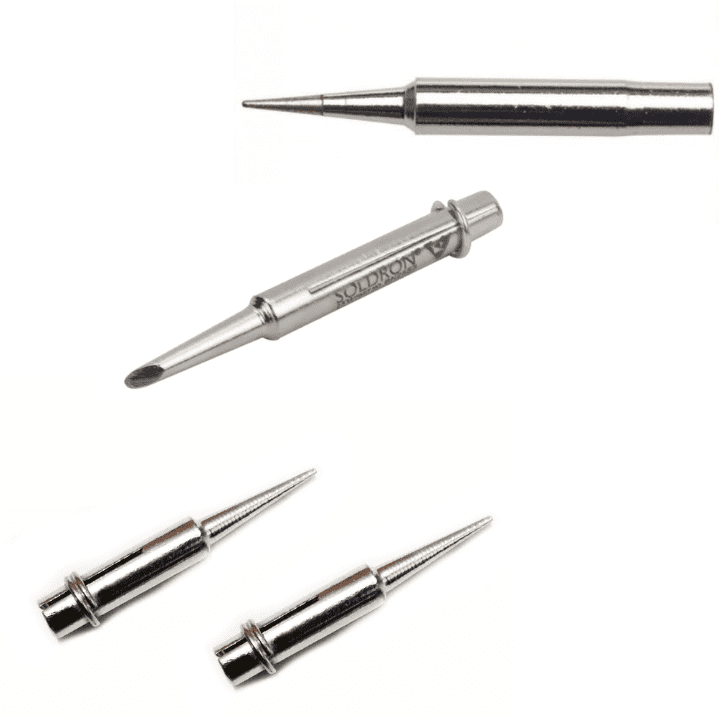Collections in this Category
-
-16%
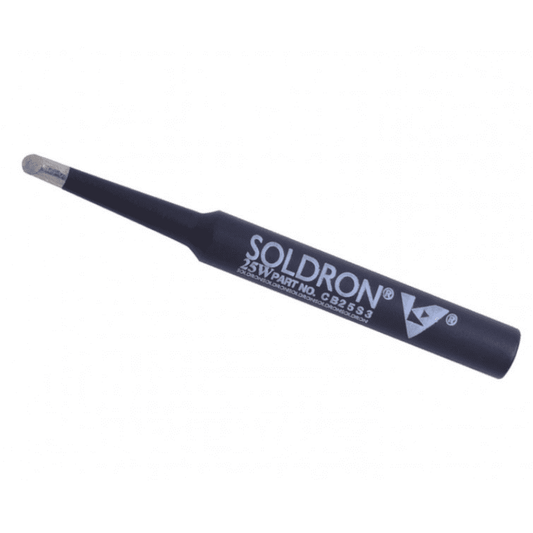
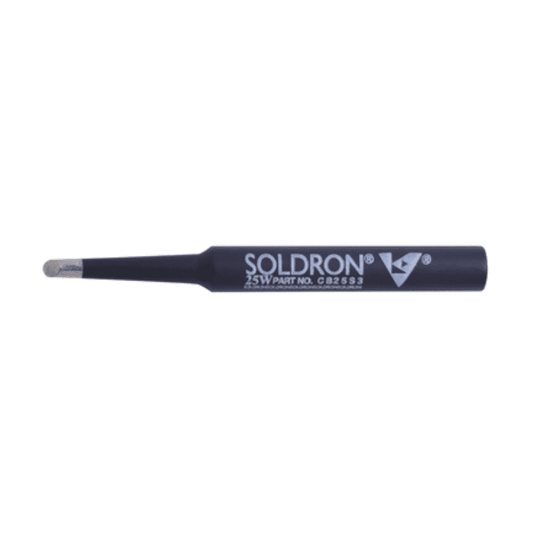
Soldron Black Ceramic Coated Delux Spade Bit for Soldron 25W Soldering Iron - CB25S3
Regular price Rs. 151Regular priceUnit price perRs. 179Sale price Rs. 151Incl. GST (No Hidden Charges)Sale -
-22%
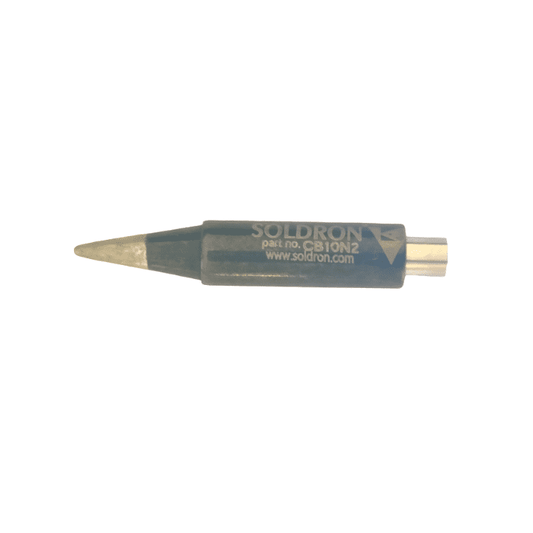
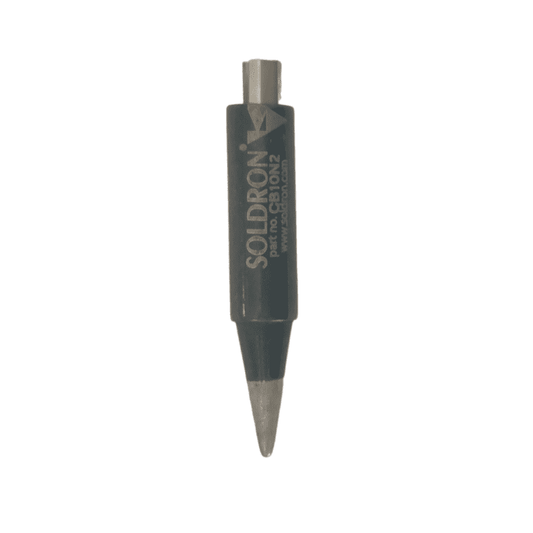
Soldron CB10N2 Black Micro Ceramic Coated Needle Soldering Iron Bit
Regular price Rs. 133Regular priceUnit price perRs. 170Sale price Rs. 133Incl. GST (No Hidden Charges)Sale -
-26%
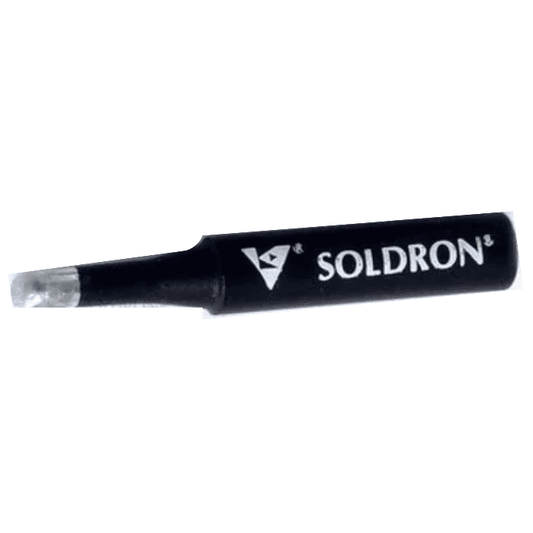
Ceramic Coated Black Spade Bit (SBS3)
Regular price Rs. 297Regular priceUnit price perRs. 399Sale price Rs. 297Incl. GST (No Hidden Charges)Sale -
-18%
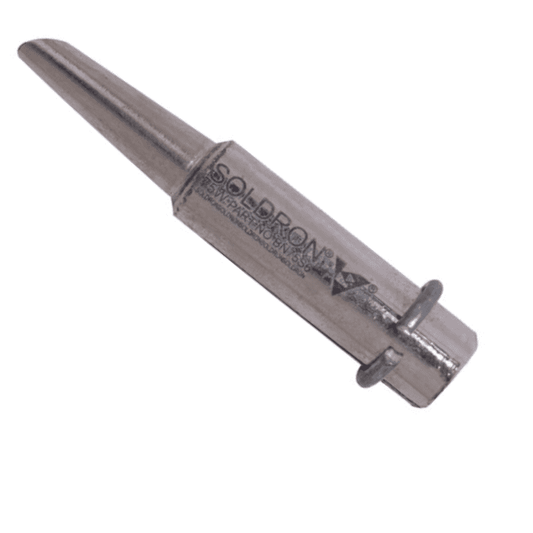
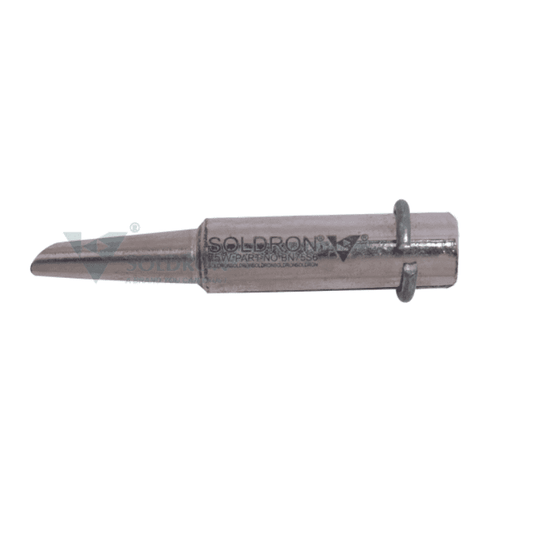
Soldron 75W Spade BN75S6 Nickel Plated Soldering Iron Bit
Regular price Rs. 327Regular priceUnit price perRs. 399Sale price Rs. 327Incl. GST (No Hidden Charges)Sale -
-25%
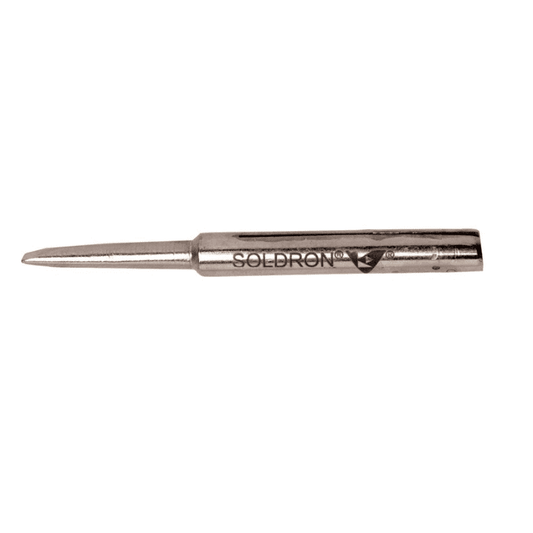
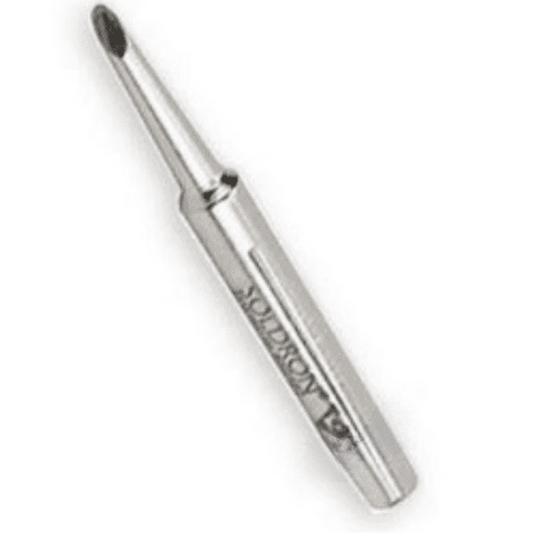
Soldron BN25S3 Nickel Plated Spade 3mm Bit Tip for 25 Watt Soldering Iron
Regular price Rs. 74Regular priceUnit price perRs. 99Sale price Rs. 74Incl. GST (No Hidden Charges)Sale -
-29%
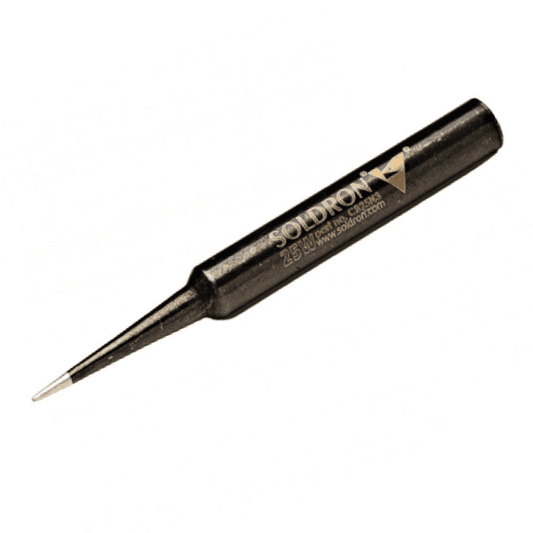
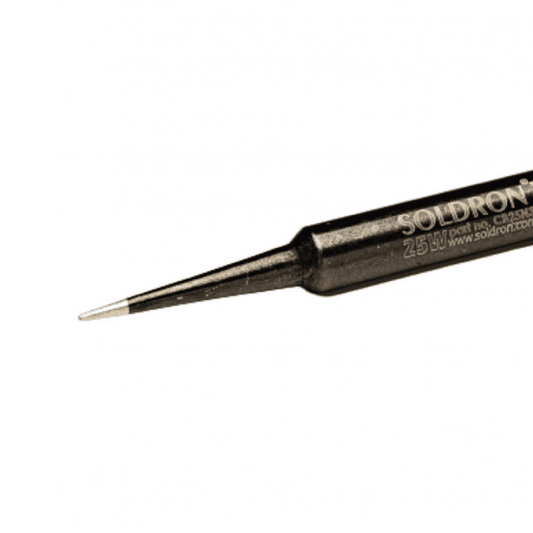
CERAMIC COATED LONG LASTING MICRO SOLDERING IRON BIT - CB25N3
Regular price Rs. 142Regular priceUnit price perRs. 199Sale price Rs. 142Incl. GST (No Hidden Charges)Sale -
-6%
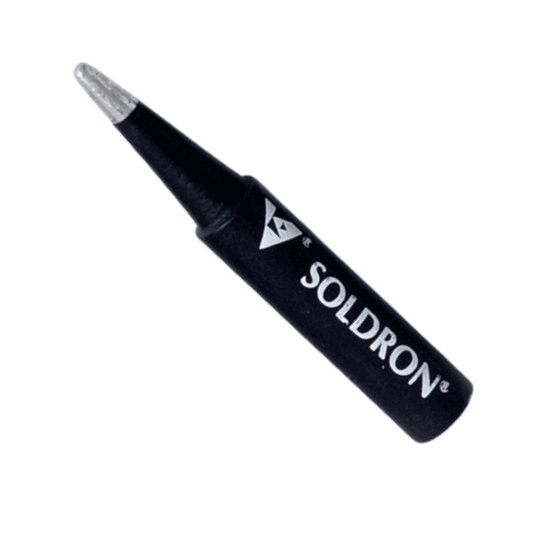
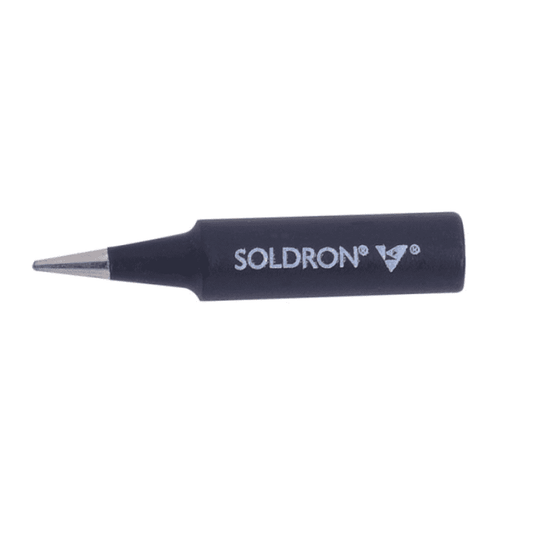
Soldron Ceramic Coated Black Fine Needle Bit For Soldering Stations 936, 938, 960, 878 & 740
Regular price Rs. 169Regular priceUnit price perRs. 180Sale price Rs. 169Incl. GST (No Hidden Charges)Sale -
-29%
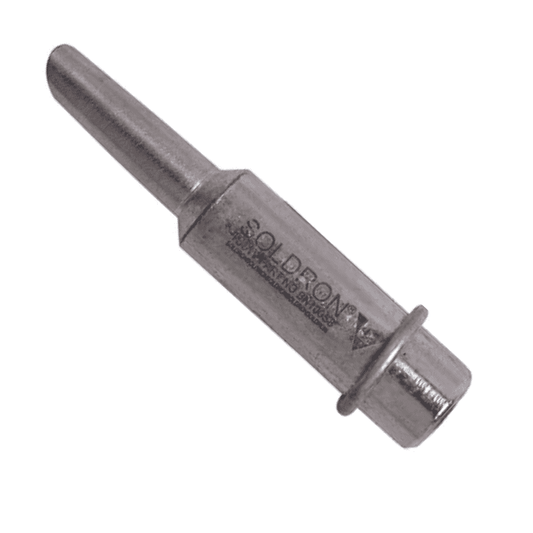
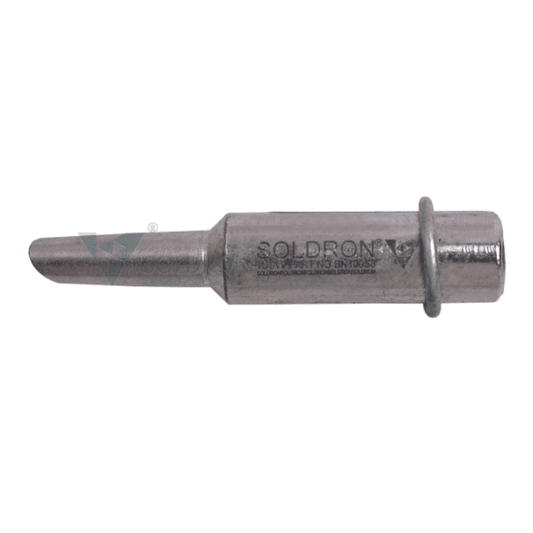
Soldron 100W Nickel Plated Spade Bit For Soldron Soldering Iron - BN100S8
Regular price Rs. 398Regular priceUnit price perRs. 564Sale price Rs. 398Incl. GST (No Hidden Charges)Sale -
-11%
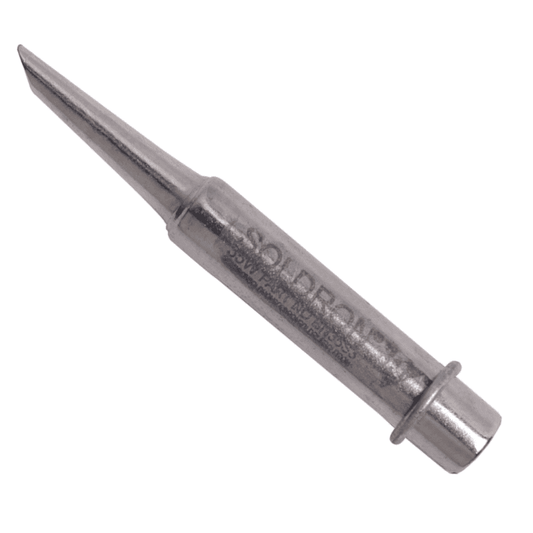
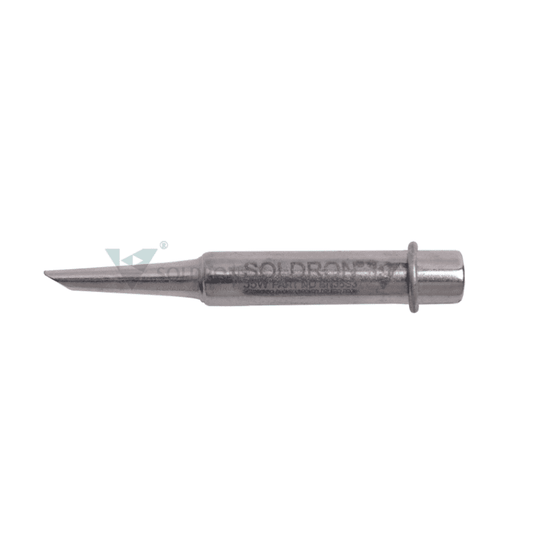
Soldron 35W Nickel Plated Spade 3mm Bit - BN35S3
Regular price Rs. 151Regular priceUnit price perRs. 170Sale price Rs. 151Incl. GST (No Hidden Charges)Sale -
-31%
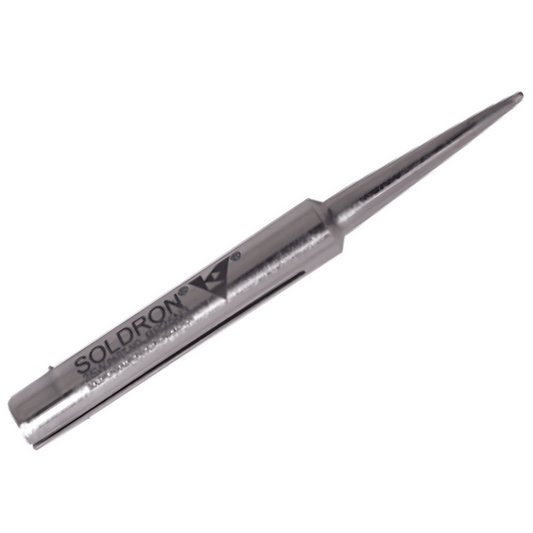
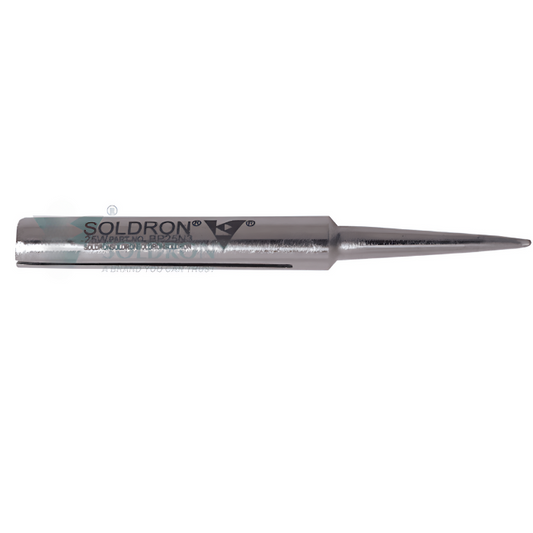
Soldron Pointed Bit Tip for 25 Watt Soldering Iron (Nickel Plated Needle Bit)- BN25N1
Regular price Rs. 72Regular priceUnit price perRs. 104Sale price Rs. 72Incl. GST (No Hidden Charges)Sold out -
-13%
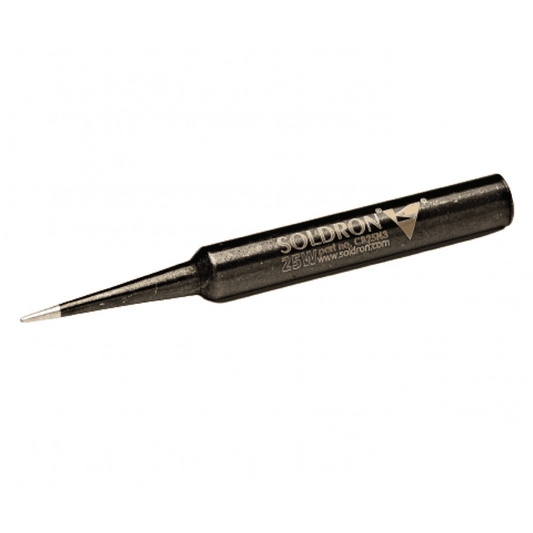
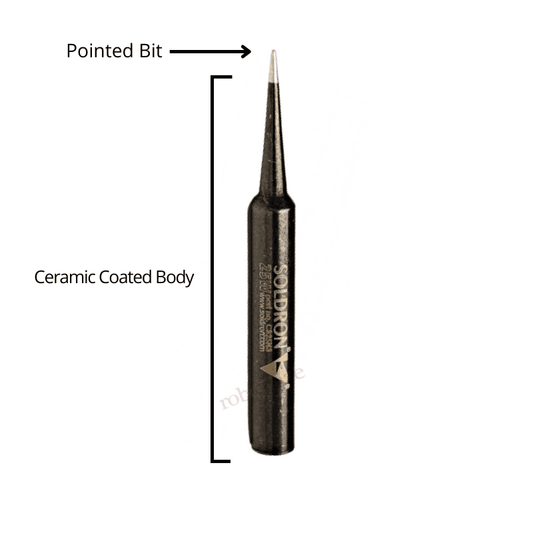
25W Ceramic Coated Needle Delux Long Life Bit For Soldron 25w Soldering Iron - CB25N3
Regular price Rs. 142Regular priceUnit price perRs. 164Sale price Rs. 142Incl. GST (No Hidden Charges)Sold out -
-21%
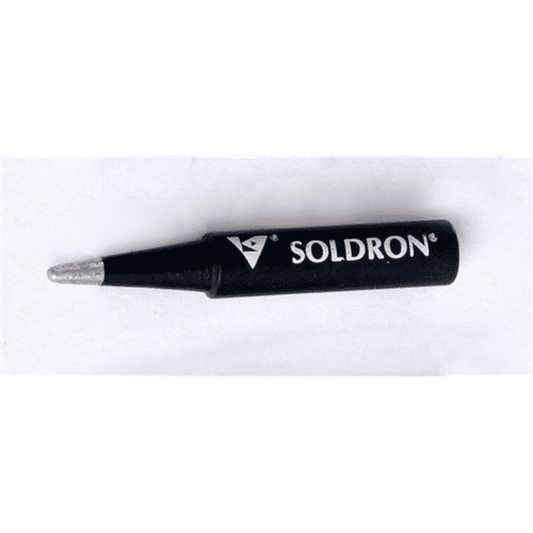
SBN3 DELUXE LONG LASTING NEEDLE BIT FOR SOLDRON 936/938/960/878D/740 STATIONS/SID60A
Regular price Rs. 170Regular priceUnit price perRs. 215Sale price Rs. 170Incl. GST (No Hidden Charges)Sale
Buy Soldering Bits Online India
Soldering bits are the removable tips that are used with a soldering iron. They come in a range of shapes and sizes to suit different soldering applications and can be changed out as needed. Some common types of soldering bits include:
- Chisel bits: These are wide and flat, with a sharp edge that is used to transfer heat to the joint being soldered.
- Conical bits: These have a pointed, cone-shaped tip that is used for precise soldering work, such as soldering electronic components.
- Bent bits: These have a curved or angled shape that is useful for reaching into tight spaces or for soldering at awkward angles.
- Knife bits: These have a flat, blade-like shape that is useful for cutting and trimming excess solder.
- Spiral bits: These have a spiral shape that is useful for spreading heat evenly over a large area.
Soldering bits are typically made of copper or another heat-conductive material and are designed to transfer heat efficiently to the joint being soldered. They can wear out over time and may need to be replaced periodically.
FAQs:
1.What is the use of soldering bit?
- Soldering bits are the removable tips that are used with a soldering iron. They are designed to transfer heat from the soldering iron to the joint being soldered, melting the solder and allowing it to flow and create a strong, reliable connection between two metal surfaces. Soldering bits come in a range of shapes and sizes to suit different soldering applications, and can be changed out as needed. Some common types of soldering bits include chisel bits, conical bits, bent bits, knife bits, and spiral bits. The type of soldering bit you choose will depend on the specific soldering application and your personal preferences. For example, a chisel bit may be suitable for soldering large, flat surfaces, while a conical bit may be better suited for soldering small, intricate components.
2.What are the types of soldering bit?
- There are many different types of soldering bits available, and the specific type you need will depend on the soldering application and your personal preferences. Some common types of soldering bits include:
- Chisel bits: These are wide and flat, with a sharp edge that is used to transfer heat to the joint being soldered.
- Conical bits: These have a pointed, cone-shaped tip that is used for precise soldering work, such as soldering electronic components.
- Bent bits: These have a curved or angled shape that is useful for reaching into tight spaces or for soldering at awkward angles.
- Knife bits: These have a flat, blade-like shape that is useful for cutting and trimming excess solder.
- Spiral bits: These have a spiral shape that is useful for spreading heat evenly over a large area.
- Ballpoint bits: These have a rounded, ball-like shape that is useful for spreading heat evenly and for creating smooth, aesthetically pleasing joints.
- Beveled bits: These have a flat, angled shape that is useful for creating smooth, beveled joints.
- Trimming bits: These have a flat, pointed shape that is useful for trimming excess solder and for creating precise, fine joints.
3.What is the bit of soldering iron?
- The bit of a soldering iron is the removable tip that is used to transfer heat from the soldering iron to the joint being soldered. Soldering iron bits come in a range of shapes and sizes to suit different soldering applications and can be changed out as needed. Some common types of soldering iron bits include chisel bits, conical bits, bent bits, knife bits, and spiral bits. The specific type of bit you need will depend on the soldering application and your personal preferences. Soldering iron bits are typically made of copper or another heat-conductive material and are designed to transfer heat efficiently to the joint being soldered. They can wear out over time and may need to be replaced periodically.
Popular Searches
Raspberry Pi | M5Stack | Development Boards | DIY Kits | 3D Printers/Pens | Arduino | Sensors | Drone Parts | Motors & Mechanical | Display Module | Batteries & Power Supply | Measuring Tools & Instruments | Cables & Connectors | Prototyping Boards | IOT & Wireless
- Choosing a selection results in a full page refresh.
- Opens in a new window.

